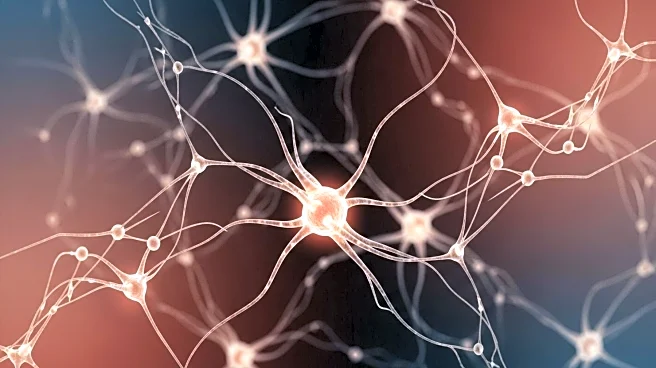What is the story about?
What's Happening?
A recent study has identified a specific brain activity pattern that signals self-preoccupied thinking, which is associated with anxiety and depression. This pattern was observed during mental breaks and predicted when individuals would soon turn their thoughts inward. The research, conducted by Danika Geisler and Meghan Meyer from Columbia University, involved analyzing brain scans from over 1,000 participants. The study found that individuals with high levels of self-preoccupation exhibited stronger fluctuations in this neural activity during rest. This discovery highlights a potential biomarker for vulnerability to mental health conditions and suggests a new target for early interventions.
Why It's Important?
The identification of a neural signature linked to self-preoccupation and mental health risks is significant as it offers a potential biomarker for early detection of anxiety and depression. Understanding the brain patterns associated with these conditions could lead to more effective interventions and treatments. This research underscores the importance of addressing maladaptive self-focus, which can exacerbate mental health issues. By targeting this neural activity, it may be possible to develop strategies to prevent the onset of anxiety and depression, benefiting individuals and healthcare systems by reducing the prevalence and impact of these conditions.
What's Next?
The researchers are exploring further applications of this neural signature, including its ability to predict real-world social network positions and the onset of depression or anxiety. If successful, interventions targeting this neural activity could be developed to offset the development of these mental health conditions. Future studies may focus on how this brain pattern influences everyday life and its potential role in other psychological or social phenomena.
Beyond the Headlines
This research opens up discussions on the ethical implications of using neural signatures for predicting mental health conditions. It raises questions about privacy and the potential for misuse in monitoring individuals' mental states. Additionally, it highlights the cultural dimension of self-focus, which can vary across societies and influence mental health outcomes differently.

















